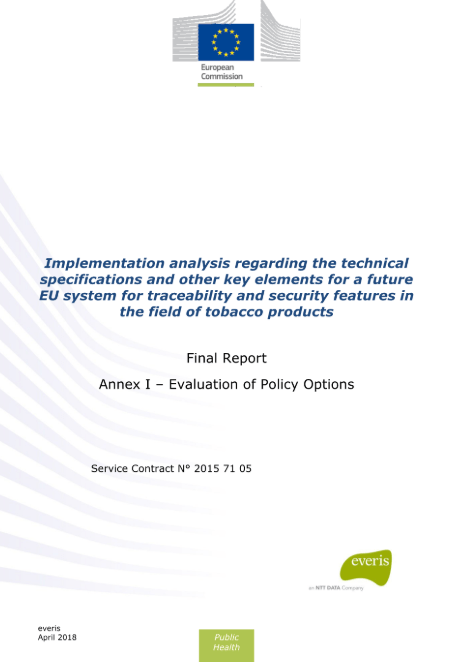

Dentsu Aegis Network AG (DAN AG) was awarded the contract to design, operate and manage the SR. A copy of all data is then sent to a central storage system, called the ‘Secondary Repository’ (SR). Every single actor in the supply chain (manufacturer, importer, distributor) must report data into a first-level storage system called a ‘Primary Repository’ (PR). All product movements are checked, validated, and recorded at each step. barcode) that allows authorities to read the information (including in the field with scanners or smartphones). The UI is embedded in a data carrier (e.g. In line with the WHO Framework Convention on Tobacco Control Protocol, the EU TPD requires that all tobacco packs produced in, destined for, or placed on the EU market must carry a traceability marking known as a ‘unique identifier’ (UI). This entails real-time tracking of billions of individual products at every step, from manufacturer to distributor down to retail outlet. The innovation lies in applying the track and trace system to the entire EU tobacco supply chain.


Closer observation of the legal part of the market can also provide important insights into its shadow part. With this data, authorities can tell how the illicit products entered the supply chain and address the problem or target suspicious activity. The traceability system equips authorities to monitor the movement of legal tobacco products (tracking), enabling them to determine at which point the product was diverted into, or appeared from, the illicit market (tracing). To target illicit trade, authorities need to understand where illicit activity happens and identify those responsible. Given its scope (26 billion packs a year, 50 thousands wholesalers and 1.2 million outlets across the EU), it is the world’s largest tracking system of this kind, capturing data for every pack of tobacco products and providing competent authorities with visibility of all activity along the supply chain. The EU TPD is an ambitious initiative aimed at protecting citizens’ health, especially young people, by tackling illicit trade in tobacco products through an EU-wide traceability system. Illicit trade is a global problem that individual countries are not effective in fighting alone. Illicit products are typically sold at lower prices, with evidence of increased youth consumption, while the income derived from such sales is often used to fund other criminal activities. Duty evasion deprives governments of billions in tax revenue each year. An estimated 1 in 10 cigarettes and tobacco products sold worldwide are illicit, making it one of the most significant types of illicit trade.


 0 kommentar(er)
0 kommentar(er)
